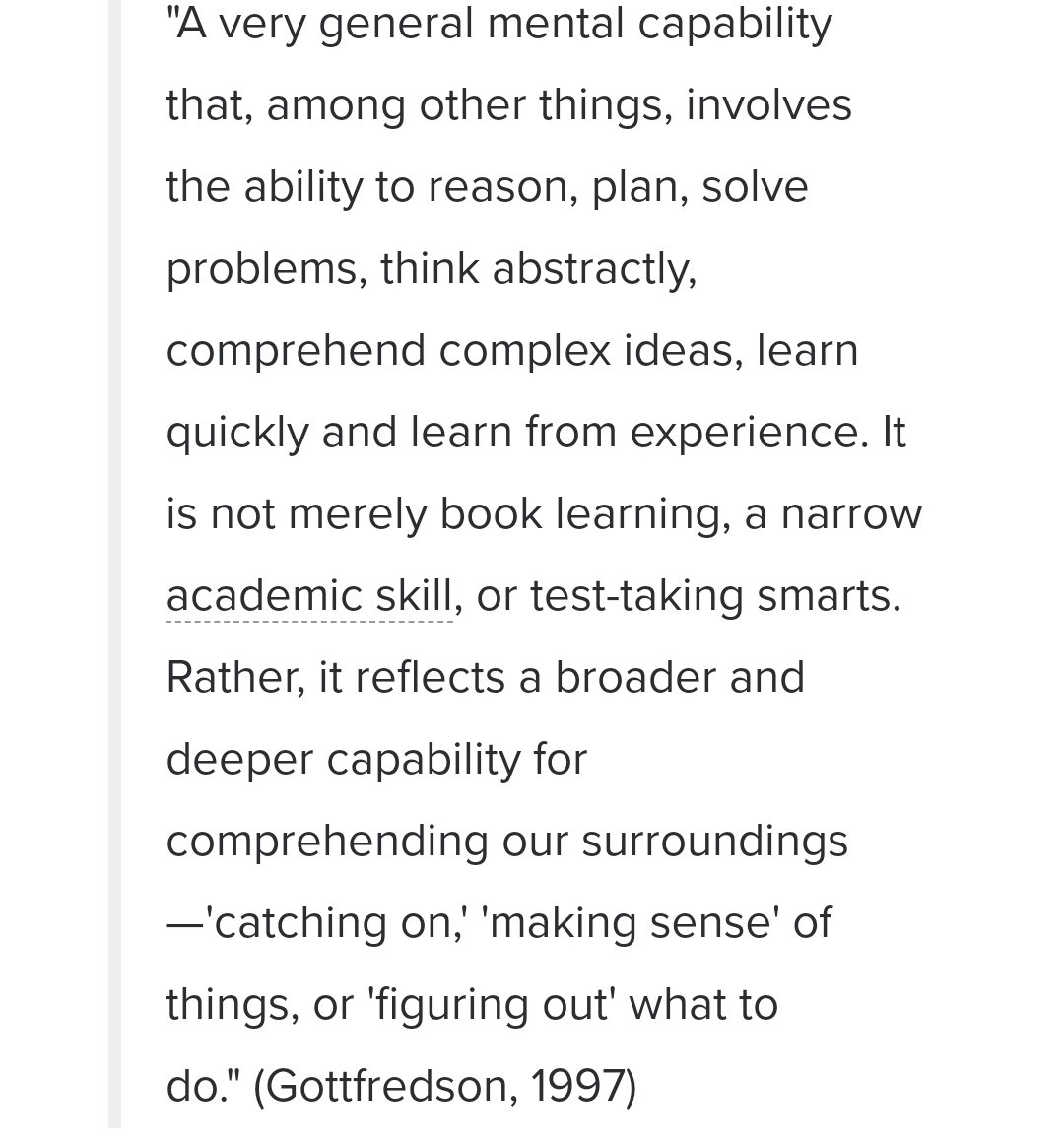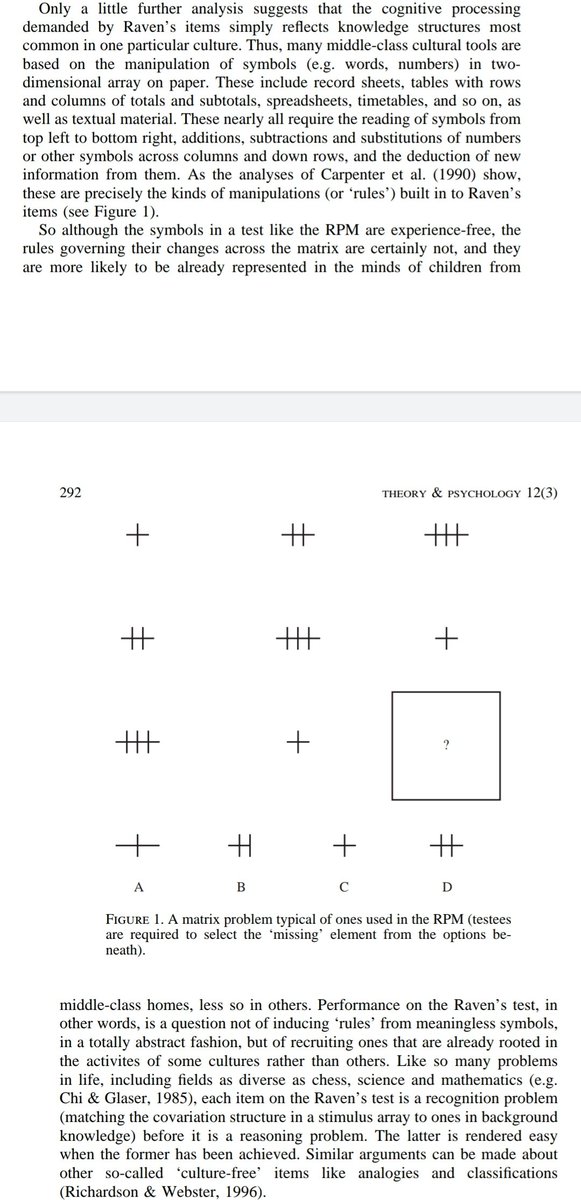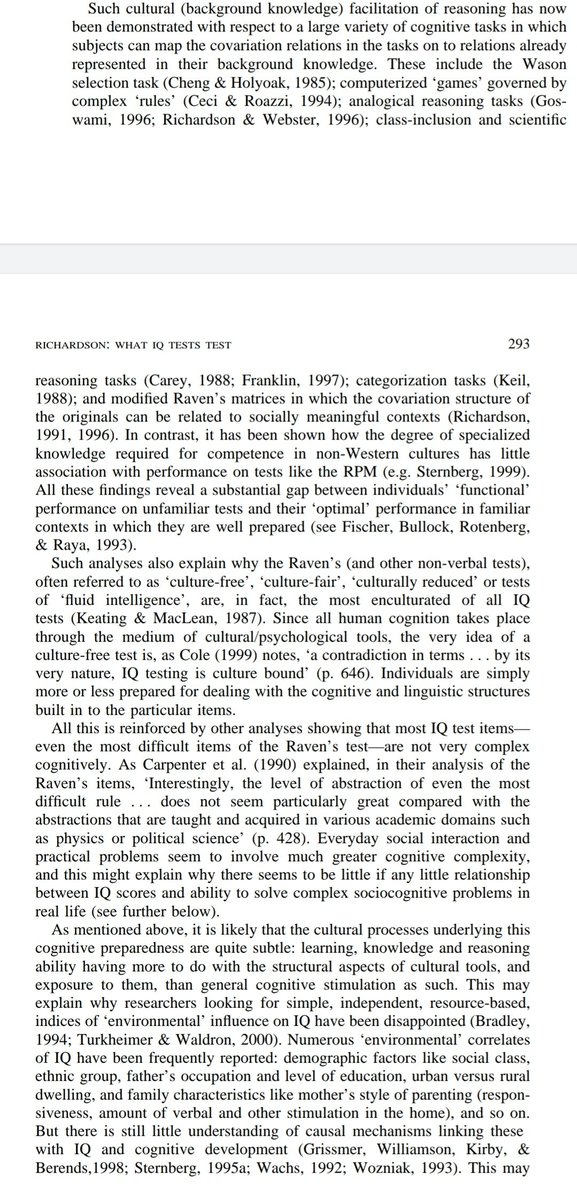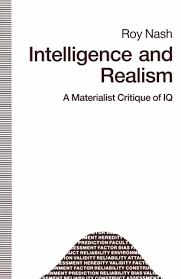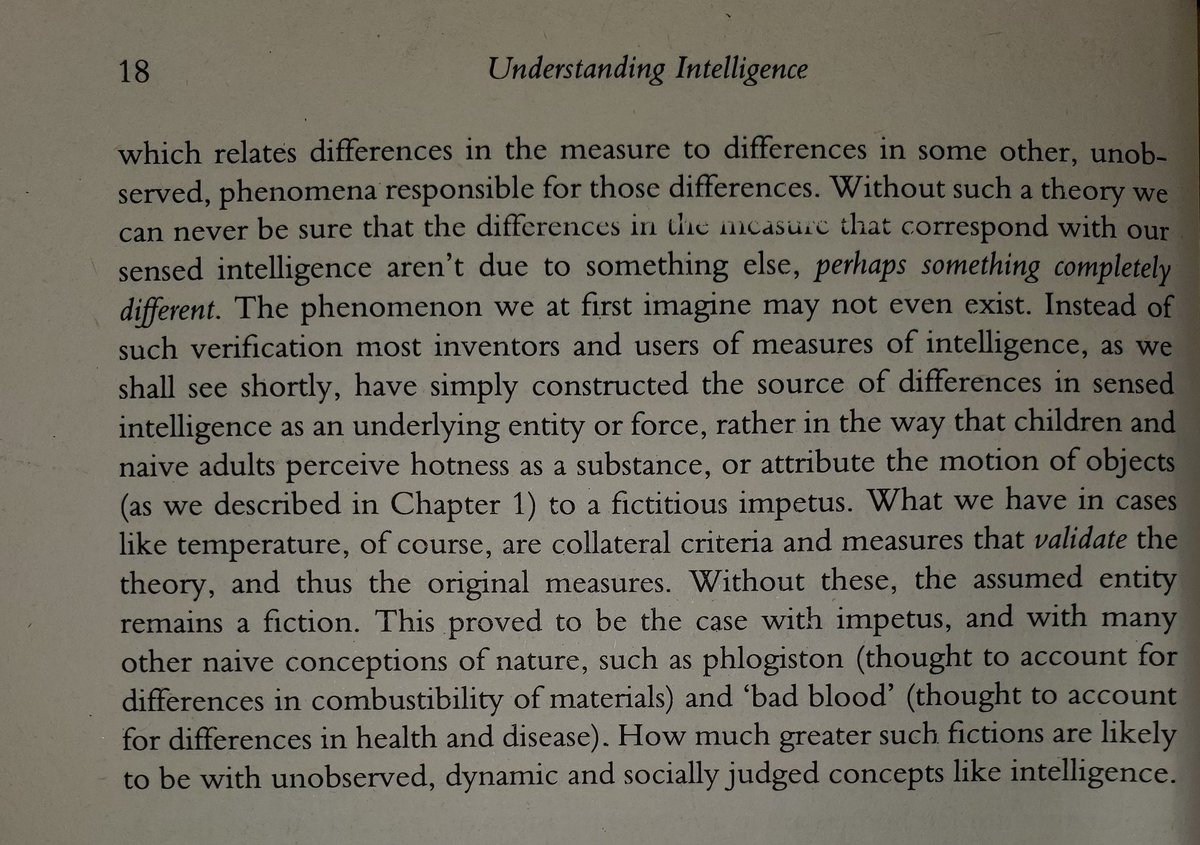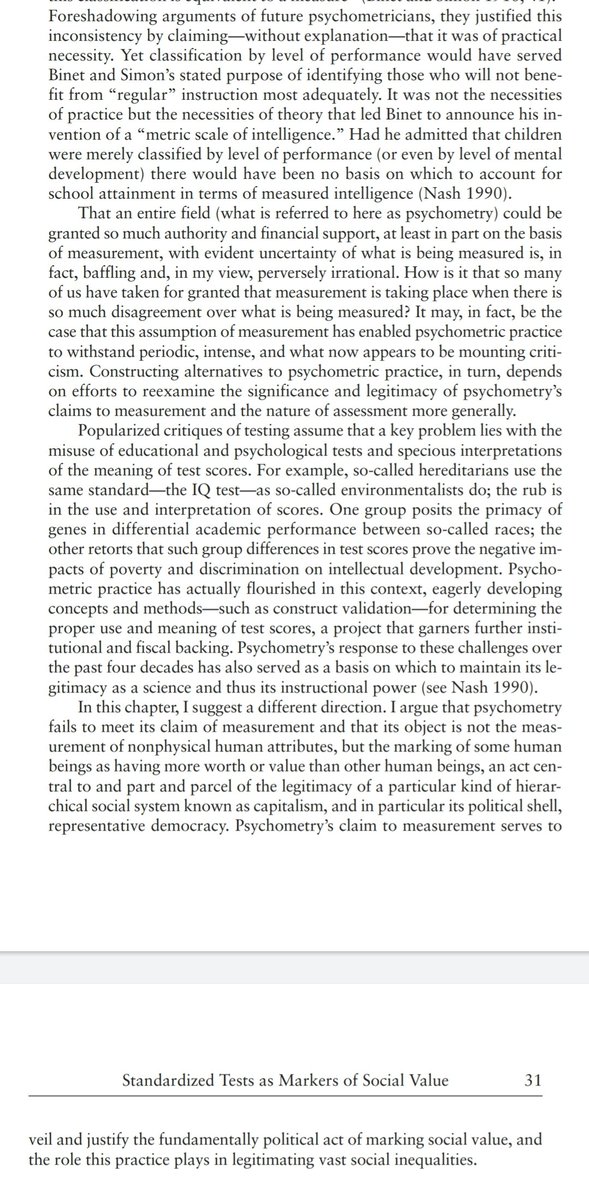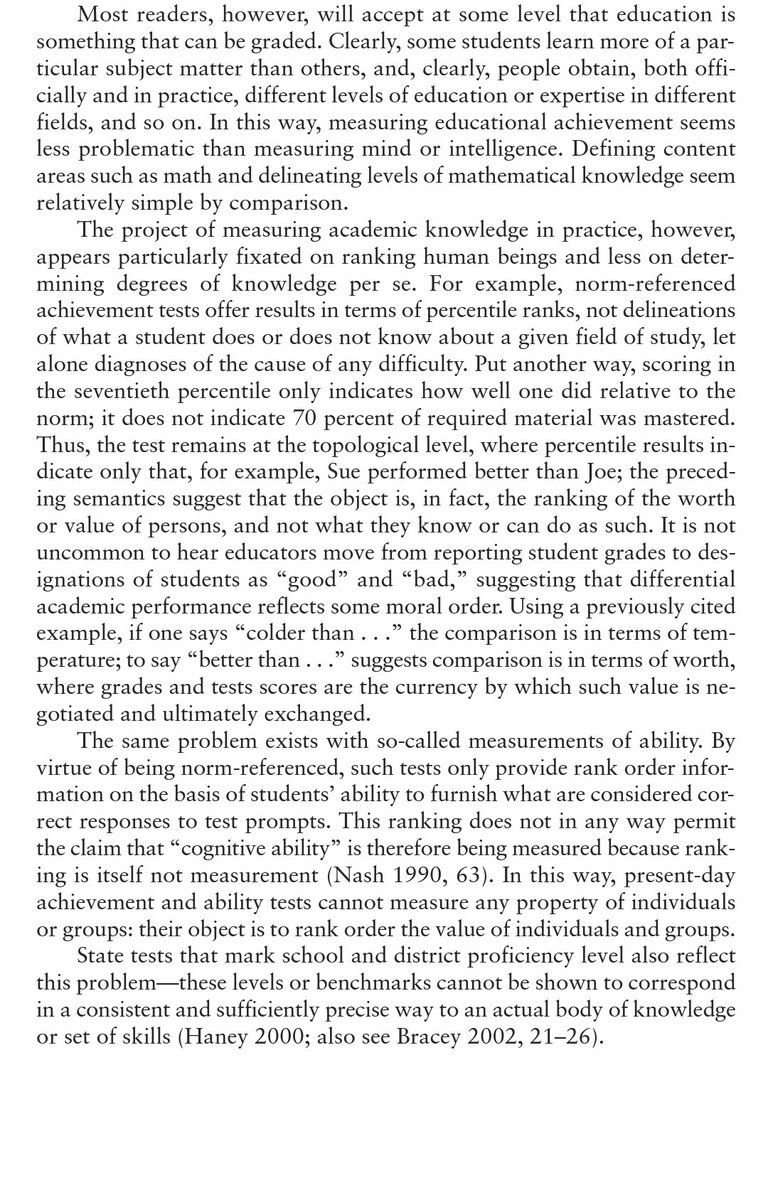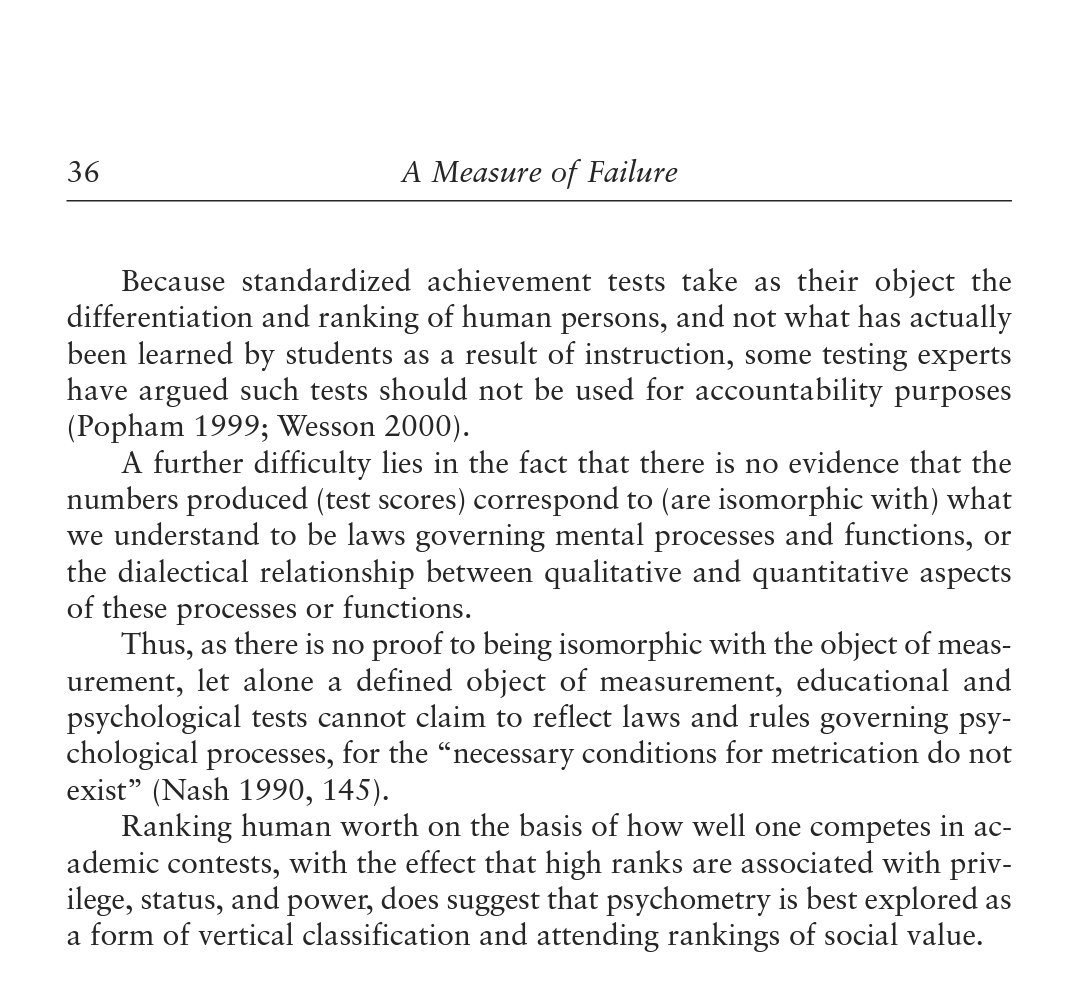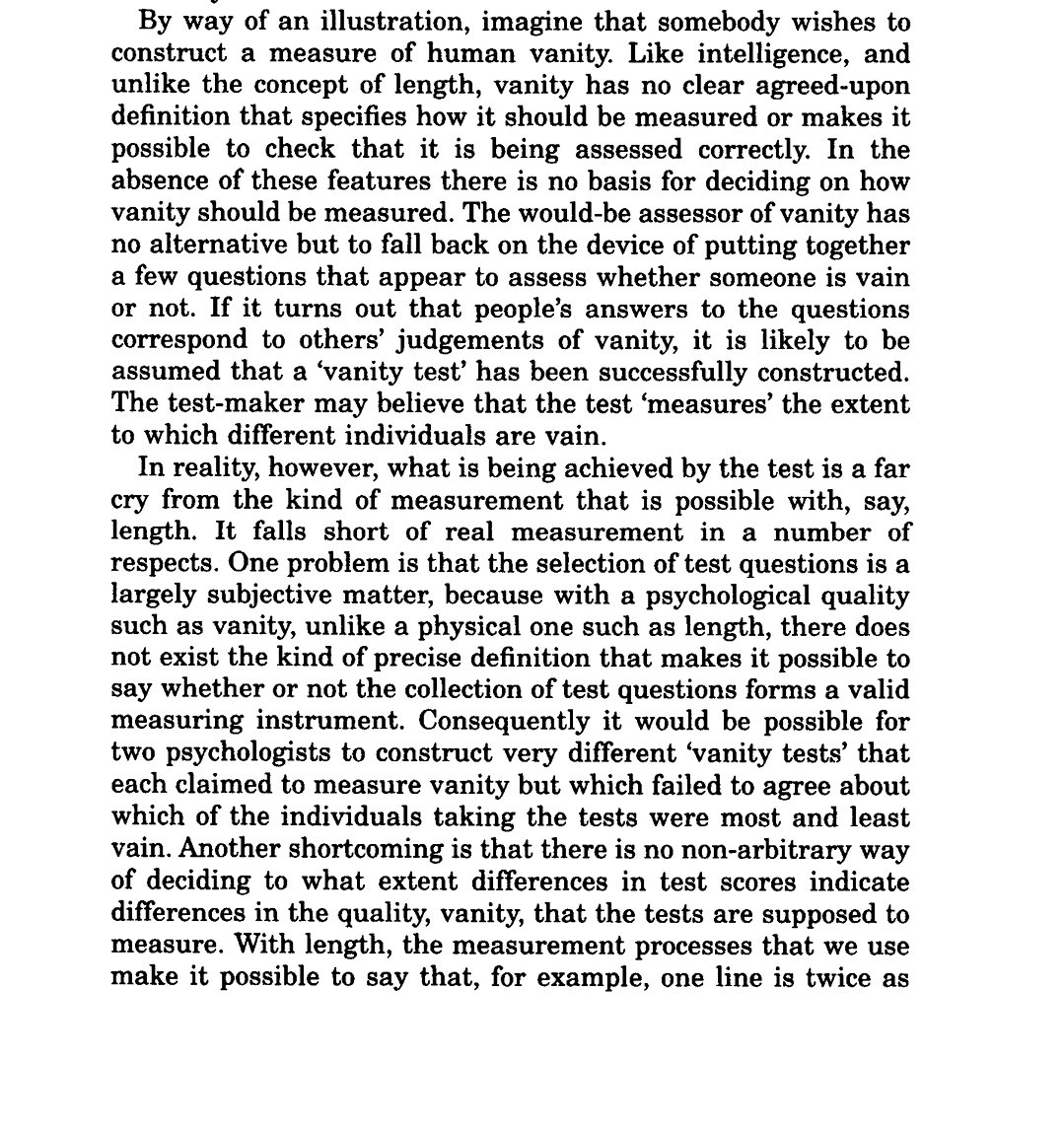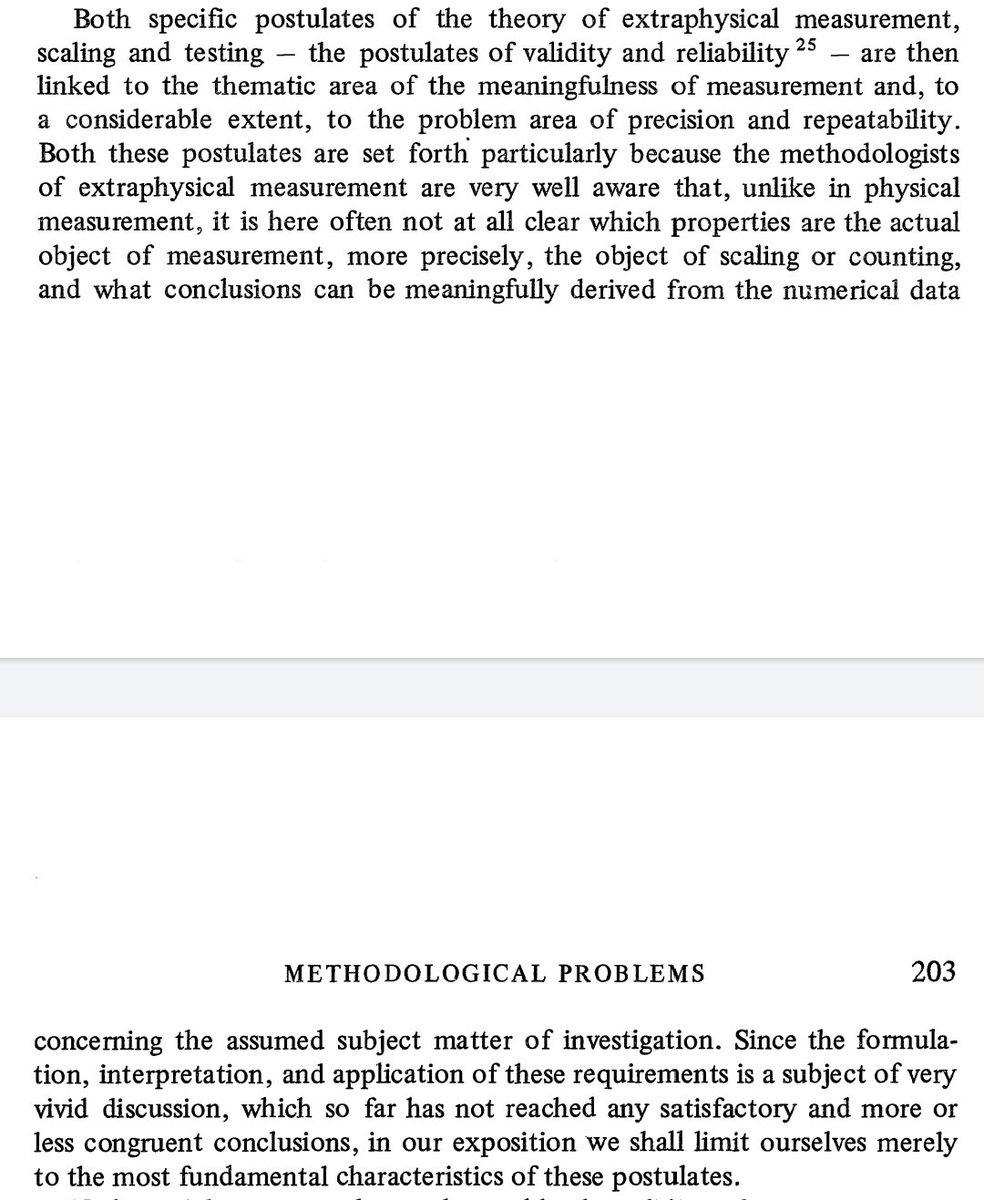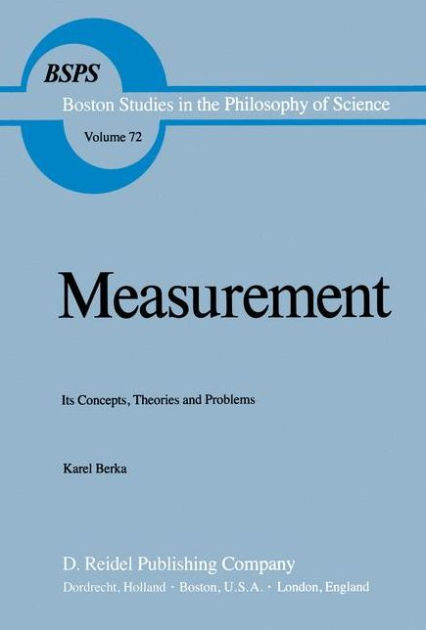1/n Let's take a look at this recent article by @AndrewRAConway on "measuring intelligence."
https://www.psychologytoday.com/us/blog/channel-g/202012/measurement-matters?amp&__twitter_impression=true https://twitter.com/sbkaufman/status/1339989102683295749
https://www.psychologytoday.com/us/blog/channel-g/202012/measurement-matters?amp&__twitter_impression=true https://twitter.com/sbkaufman/status/1339989102683295749
2/n To begin, he brings up two "conceptual definitions" of "intelligence", one from Neisser et al (1996) and the other from - surprise surprise - Gottfredson (1997). I have already pointed out the contradiction in Gottfredson's "definition":
https://notpoliticallycorrect.me/2019/12/09/definitions-of-intelligence-and-its-measurement/
https://notpoliticallycorrect.me/2019/12/09/definitions-of-intelligence-and-its-measurement/
3/n Conway then says that "intelligence" is a "cognitive entity rather than a physical entity" - so right here he ends what he's trying to defend since only physical things can be measured - the immaterial is immeasurable.
4/n He then brings up an "operational definition", stating this concept is "based on the conceptual definition", using "generate test "items" to sample the behaviors of people that assess the efficiency of the cognitive functions laid out in the conceptual definition."
5/n So the items Conway brings up are... a knowledge question and an item where one must reason to know which number comes next in the sequence. No justification at all for why these "definitions" capture "intelligence", nor how these items "measure it."
6/n Conway then says that "Standardized intelligence tests are an objective approach to the measurement of cognitive abilities." Yet even Jensen (1980: 147-148) admitted that "[test] items must simply emerge arbitrarily from the heads of test constructors."
7/n So how are standardized tests (of which IQ tests were some of the first and used as the model for eg the SAT) "an objective approach to the measurement of cognitive abilities" if the items chosen for inclusion on the test are subjective to the constructor?
8/n This brings up yet another point when it comes to test construction - the constructors presuppose who is or is not "intelligent" and then construct the test accordingly. This again goes back to how items emerge arbitrarily from the heads of test constructors, as Jensen said.
9/n This was done by Terman who equalized scores between men and women along with test constructors in South Africa who equalized scores between two white cultural groups. This shows that test constructors can, with different assumptions, change the results of the test.
10/n This, in effect, makes IQ tests a *political tool to meant to assess people and place them where they belong on the social hierarchy.* IQ-ism - and psychometrics - is therefore a political ring.
11/n Thus, IQ-ism - and psychometrics - is about attempting to naturalize/biologicize inequalities and social roles. "What do intelligence tests measure?" And, perhaps the best part of the article, he says that they "measure"... "the subtests that the battery includes"!
12/n He finally brings up the Raven and how he and other researchers have atttenpted to "identify the cognitive processes underlying differences across people in fluid reasoning." He fails to realize that the Raven is the most enculturated test of all (Richardson, 2002: 291-293):
13/n He then ends with asking if "this is the right way to define intelligence?" and similar questions.
14/n Glaring omissions - failing to discuss: Nash's (1990: 145-146) argument showing that since IQ-ists have not specified the measured object, the object of measurement and the measurement unit, then such "measures", as they claim to have been doing all along, are impossible.
15/n Richardson (1990: 17-18) in Understanding Intelligence argues that "intelligence" is nothing like temperature, which has been validated independently of the measurement used to "measure" it:
16/n Garrison (2009: 30-36) In A Measure of Failure argues that, such tests aren't "measument tools", they function as assessment, not measument, devices.They're used to mark social value, since the test constructors already have biases and construct the test accordingly.
17/n Howe (1997: 5-6)argues that since there is no agreed-upon definition of vanity nor "intelligence" then one cannot say that one is twice as vain or twice as "intelligent" as another like we say one stick is longer than another. Therefore, only physical things can be measured.
18/n Berka (1983: 202-203) was originally the first to argue that only physical things can be measured and that the a necessary condition for measurement is a measured object and the objects of measurement - or the properties of the measured object.
19/n Put another way, psychometricians don't conceptualize the object of measurement in a way that minimally satisfies theories of measurement and the practice of measurement.
20/n Put bluntly, this article is pathetic and does nothing to refute any is the arguments I've provided here. I wonder if @AndrewRAConway will address these arguments in future articles...
I won't hold my breath.
I won't hold my breath.
Prediction: @AndrewRAConway will either fail to respond to the arguments forwarded in this thread - either by ignoring them or unsuccessfully attempting to mount sound counters to the arguments. https://twitter.com/AndrewRAConway/status/1340096429969211395?s=19

 Read on Twitter
Read on Twitter
